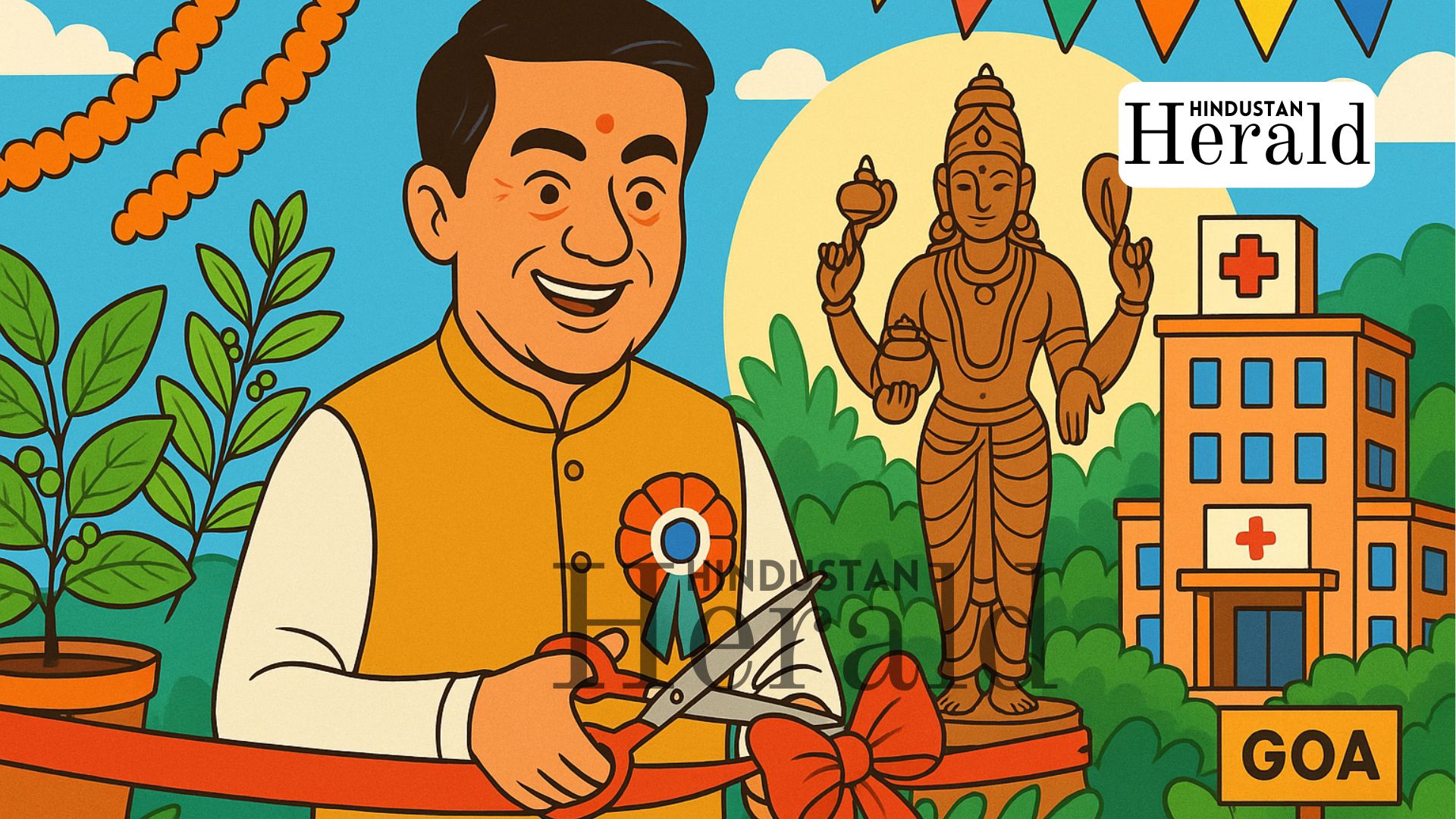New Delhi, September 23: Ayurveda Day landed on the calendar today with more weight than usual. For the first time, the government fixed the celebration to September 23, leaving behind the drifting lunar schedule that tied it to Diwali. It may look like a technical change, but in politics and policy, the details matter. This was about sending a signal: Ayurveda is not going to be a moving target anymore. It has its own date, stamped in ink.
Goa As The Stage
The official ceremony unfolded in Goa at the All India Institute of Ayurveda (AIIA). Union Minister Prataprao Jadhav arrived to inaugurate a new Integrative Oncology Unit, alongside a blood storage facility and a sterile supply department.
In plain terms, the place now has the kind of infrastructure you would expect from any modern hospital. That is deliberate. The government has been pushing the idea that Ayurveda is not stuck in the past. It can stand shoulder to shoulder with mainstream medicine. A cancer unit linked with Ayurveda will make some doctors uneasy, but it also shows how far the integration experiment has moved since the creation of the AYUSH Ministry in 2014.
Awards And Rituals
The ceremony was not only about buildings. The Dhanwantari Ayurveda Awards were handed out, a nod to researchers, teachers, and practitioners who have kept the field moving forward. Recognition within the community carries weight. It keeps morale high in a discipline often pulled between cultural pride and scientific scrutiny.
The Larger Push
Strip away the garlands, and the real story is about positioning. The government has been treating Ayurveda as both domestic policy and foreign policy. Inside India, it is sold as preventive care rooted in heritage. Outside, it is an export, a form of cultural capital much like yoga.
The numbers are hard to ignore. AYUSH-related exports have more than doubled in a decade. And the WHO’s Global Centre for Traditional Medicine in Jamnagar has put India in a visible leadership role.
But critics keep returning to the same question: evidence. Some Ayurvedic practices are well-documented. Many are not. Without large-scale trials and hard data, skeptics warn that the promotion risks sounding more like politics than science.
A Theme With Reach
This year’s theme, “Ayurveda for People, Ayurveda for Planet,” was carefully chosen. It fits neatly with the global talk around climate, sustainability, and lifestyle disease. Ayurveda has always stressed balance: food in rhythm with the seasons, herbal remedies, and prevention over cure. Those principles suddenly feel very modern, even if they are centuries old.
Minister Jadhav leaned into that in his speech, calling Ayurveda “a way of living with nature, not against it.” In a country struggling with air quality, stress, and lifestyle disorders, that line carried weight.
Why It Counts
Fixing Ayurveda Day to September 23 might look like a bureaucratic footnote, but it is actually a milestone. It roots the tradition in a modern calendar, gives planners a fixed date, and signals intent. The choice of Goa as the venue, known for its tourism and modern medicine, was also telling. It was a stage for the government to showcase old and new side by side.
The challenge is still ahead. Ayurveda cannot win long-term trust without research that stands up to global standards. The government knows this, but the pressure to promote often outpaces the science. For now, though, September 23 belongs to Ayurveda. The message is loud: this is not just about heritage, it is about the future.
Stay ahead with Hindustan Herald — bringing you trusted news, sharp analysis, and stories that matter across Politics, Business, Technology, Sports, Entertainment, Lifestyle, and more.
Connect with us on Facebook, Instagram, X (Twitter), LinkedIn, YouTube, and join our Telegram community @hindustanherald for real-time updates.
Public health researcher and science communicator translating complex topics into accessible insights.
Covers Indian politics, governance, and policy developments with over a decade of experience in political reporting.








